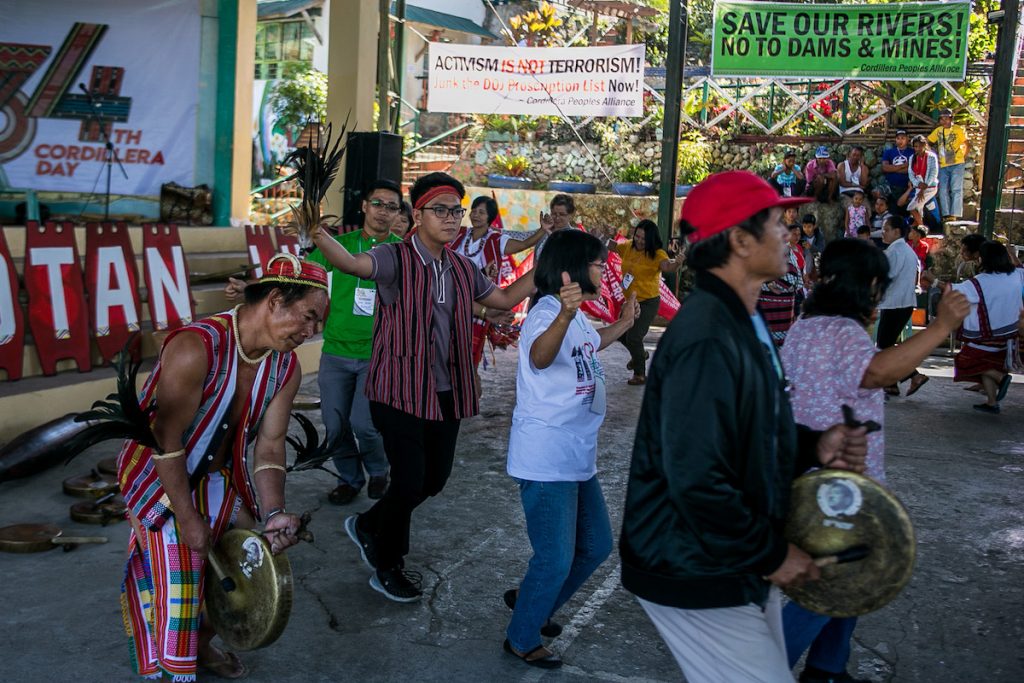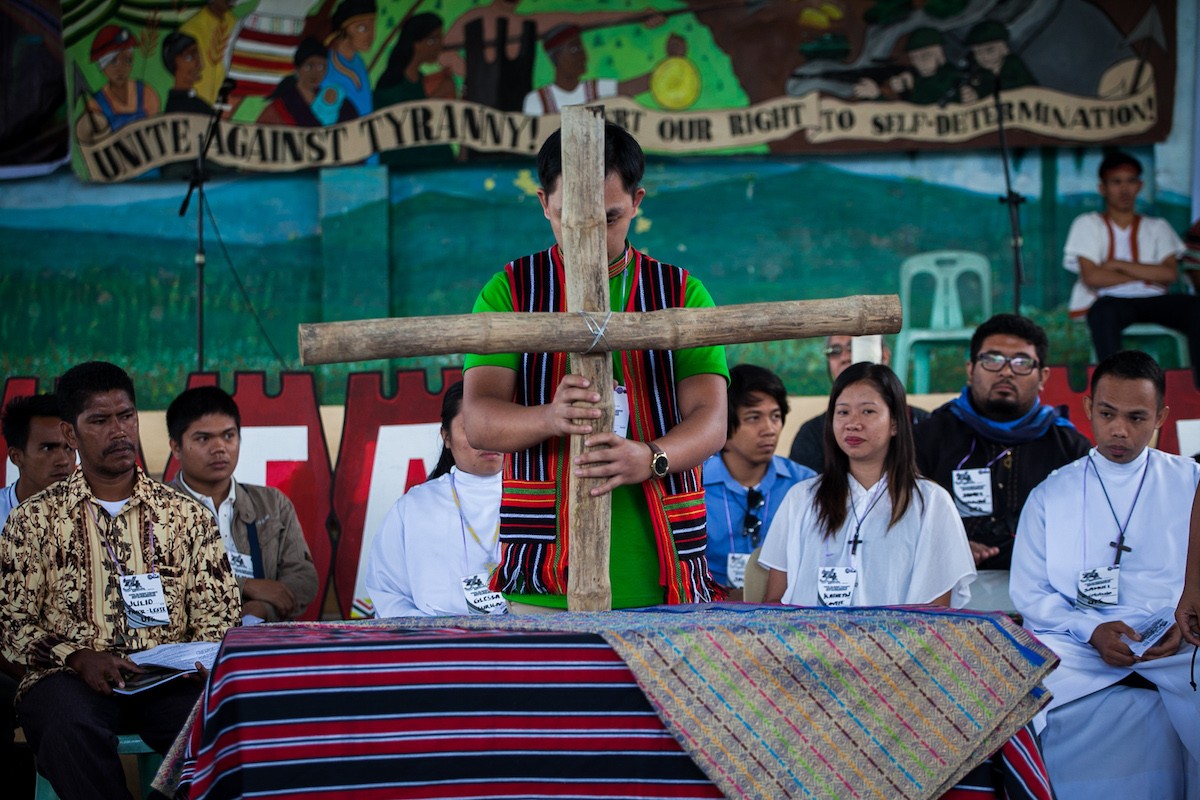A network of tribal organizations in the northern Philippines launched on Sept. 12 a global campaign to defend indigenous people’s territories in the area.
The Cordillera People’s Alliance led a “global pact” that seeks broad support to protect ancestral lands in the Cordillera region from what it called “environmental plunder and human rights abuses.”
In an online conference, Bestang Dekdeken, CPA secretary general, said the Cordillera region and its people are continuously being “treated as a resource base for profit” by the state and big businesses.
She said the entry of “development projects” in the region resulted in the destruction of ancestral lands, violations of their right to self-determination, and numerous human rights abuses.
“The present administration is using the pandemic as a smokescreen to stifle our dissent over the intrusion of destructive projects,” she said.
Dekdeken claimed that the military presence in tribal communities “aims to instill fear and suppress communities” from defending their lands.
The Cordillera, which is composed of six landlocked provinces, is home to the Igorots, a collective name for the ethnic groups living in the region.
The region is blanketed with more than 100 mining applications covering 978,664 hectares of land and more than 100 hydropower and geothermal projects awarded to private corporations.
One of the major development projects in the area is the Chevron Geothermal Power Project that covers more than 25,000 hectares of land in Kalinga province.

Pastor Dhee Laguitnay of the United Council of Churches in the Philippines said these projects threaten to displace thousands of tribal people and the massive destruction of ecosystems.
The Protestant church leader said the Cordillera is one of the last lungs of the country and it must be “preserved and nurtured for the next generations.”
Pastor Laguitnay urged tribal communities, ethnic groups, and indigenous clans to “protect the ancestral lands like how our forefathers did in the past.”
In April 2018, President Rodrigo Duterte announced that the government has entered into a loan agreement with China to fund the building of an irrigation project in the Cordillera region.
The project, which includes the construction of a pump station, canals, service roads, and a dam, is expected to serve about 8,700 hectares of agricultural land.
The government’s National Irrigation Administration said the project would benefit at least 4,300 families in the northern provinces of Cagayan and Kalinga.
The agency said the project will generate 14,784 jobs during its implementation and more than 8,000 jobs when it becomes operational.
The irrigation project will source its water from the 175-kilometer long Chico River, which straddles the Cordillera mountain range and flows down to join the Cagayan River.
The Chico River is considered a “river of life” by the Igorots. Once operational, the irrigation project is expected to submerge dozens of communities and farmlands.
Various organizations have expressed their support to the “global pact” to protect the Cordillera.
About 15 tribal organizations from different regions in the country under Katribu, an alliance of tribal groups in the country, have already signed the pact.
Kakay Tolentino, spokeswoman of the alliance, said the situation of the Igorots in the northern Philippines is “no different from the condition of all indigenous communities” in the country.
“The growing assertion by the Cordillerans to life, land, and rights is also the assertion of all ethnic minorities,” she said.







